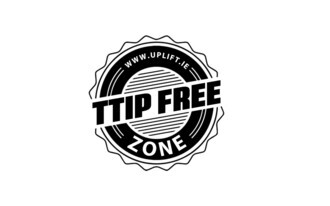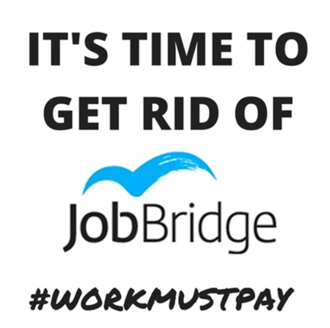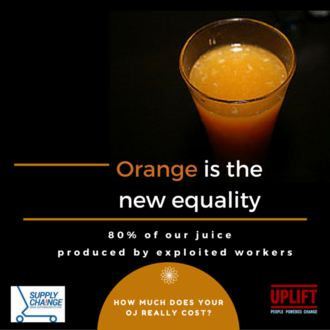- Featured
- Animal Rights
- Anti-racism
- Arts & Culture
- Children
- Climate
- Corporate accountability
- Crime
- Disability rights
- Economic
- Education
- Environment
- Food and Sustainable Production
- Gender Equality
- Governance and Transparency
- Health
- Housing
- LGBT Rights
- Mental health
- Northern Ireland
- Planning
- Privacy and Data Protection
- Rural Inequality
- Social Justice
- Trade
- Transport and Infrastructure
- Workers' Rights
- More
-
Support a referendum to stop water privatisationA decision is imminent on the Bill to insert into the Constitution an amendment which would rule out any future privatisation of water, or water services. Forty TDs have signed the Bill including Independents4Change, Sinn Fein, AAA/PBP and a number of independent TD’s. A number of others including the Green Party, the Labour Party and the Social Democrats have said publicly that they would support a referendum on public ownership of our water, so the Bill has a real chance of passing. However, this Bill will only pass if supported by Fianna Fail. We are calling on all TD's to prove they oppose water privatisation by supporting the Bill. At this very moment in time, any government, including the current one, could legislate to sell off our public water system. Furthermore, even if a government did not want to sell off our water, the EU, IMF or ECB could force the sale in the future – like they did in Greece and Portugal – so we have to protect our vital public water system now! The devastating impacts of water privatization have been felt all around the world. In the UK, one in four people are now experiencing water poverty. In the US, Rome and parts of France, tens of thousands are having their water shut off. We can prevent much of this by putting ownership of our water in the Constitution. More information here: http://tinyurl.com/zqn5gt66,200 of 7,000 SignaturesCreated by Right2Water Ireland Water is a human right
-
Reinstate the 98 sacked workers in the Philippines by C&F ToolingWe are calling on Galway based multinational C&F Group to reinstate 98 workers sacked in the Philippines for joining a trade union. On May 26, 2016, the workers, many with 3 to 12 years service, registered their Trade Union with the Department of Labor and Employment and the very next day, on May 27, the company abruptly offered a redundancy programme. The Union obtained its Certificate of Registration on May 30, 2016 and on June 6 filed for representation rights for the workers for collective bargaining purposes. On the very same day, management at the company said they were subjecting 98 workers to "retrenchment," or laying-off, of which more than 63 are union officers or union members. Three days after the lay-offs, the company replaced the sacked workers with 55 new agency staff on top of the 50 agency workers already employed in the plant. Since the workers were dismissed, they have been on strike outside the factory. It is the first ever industrial action in the economic zone in the Philippines and has been in place for more than 8 weeks now. Speaking on behalf of the workers, Esmereldo Ison said, “What has happened to us is very disappointing. Many of us have worked for this company for several years and we have been sacked for trying to avail of our international human rights.” He explained that the workers have filed for illegal dismissal cases but that process could take up to 10 years. “We need our jobs so we can feed our families. We cannot wait three or four years for this to reach the courts. We want to be reinstated immediately.” Mandate Trade Union General Secretary John Douglas, speaking on behalf of four trade unions in Ireland including Unite, the Communications Workers’ Union and OPATSI, said the actions of management at C&F are deplorable. “This is a clear case of union-busting and it’s embarrassing that it’s an Irish firm with Irish management involved in this type of exploitation.” He added, “The Managing Director of C&F, John Flaherty, needs to do the right thing and ensure these workers are reinstated immediately and compensated for any losses they have incurred due to the illegal and discriminatory behaviour of his management team in the Philippines.” C & F Manufacturing Phils. Corporation is an Irish-owned subsidiary of C & F Tooling Ltd. of Galway, Ireland. They have operations in Ireland, Germany, Czech Republic, USA and the Philippines. According to the company website, C&F Group had a turnover in excess of $100m in 2007 and the company supplies components to multinational corporations including IBM, EMC, APC, Ingersoll Rand, Glen Dimplex, Sanyo and Hitachi Koki. The unionised workers are demanding that the company: 1. Reinstate unconditionally all the 98 workers summarily and discriminately terminated. 2. Recognize and respect the rights of the workers to organise and to collectively bargain; 3. Respect the right of the workers for a one-day rest in a week and stop the inhumane practice of continuous and excessive long hours of work. 4. Investigate and impose disciplinary action on managers Paul Hynes and Damian Gavin for their attitude towards the Filipino workers. 5. Lastly, for management to make corrective actions to address the violations of the Electronic Industry Citizenship Coalition (EICC) Code of Conduct. NOTE: C&F Group’s code of ethics include: “FREEDOM OF ASSOCIATION In conformance with local law, participants shall respect the right of all workers to form and join trade unions of their own choosing, to bargain collectively and to engage in peaceful assembly as well as respect the right of workers to refrain from such activities. Workers and/or their representatives shall be able to openly communicate and share ideas and concerns with management regarding working conditions and management practices without fear of discrimination, reprisal, intimidation or harassment.616 of 800 SignaturesCreated by Dave Gibney
-
Stay-At-Home Parents Provide Childcare TooChildcare costs for stay-at-home parents - it costs 100% of their salary. It's a matter of equality that any provision for childcare in the budget needs to be paid equally to these families, who are struggling to keep their heads above water. A payment to help one family and not another pits families against each other, when all families deserve to be helped. We need to put people first. This is about giving every parent, regardless of their gender and their family structure, the right to choose how to care for their children, which is such a short period of their lives but can be such a struggle. All financial positions are comparative and what makes families poor is that they shoulder the financial burden of bringing up the next generation. This burden is every bit as real for those whose childcare costs involve them working at home for no money. It makes it harder to rent a house. It makes is harder to buy a house. And it makes it harder to put food on the table. The fact that we do not have occupations in the public eye does not mean we don't exist and it does not mean that we don't provide a valuable service for society. Help show that this matters by supporting the campaign.3,071 of 4,000 SignaturesCreated by Pauline O'Reilly
-
Declare Wicklow a TTIP and CETA Free ZoneOur local businesses, environment and democracy are under threat from a trade deal currently being negotiated between the EU Commission and the USA. The deal is called TTIP and could outlaw local authorities’ support of local businesses, allow multinational corporations to sue us if councils deny fracking permits and open up services like water, health and education to privatisation. What’s up for grabs are the rules and regulations that force corporations to abide by standards that protect our health, our rights, our jobs, services and the environment. These regulations for example stop corporations releasing chemicals and products into the market before they are proven to be safe. They also make sure workers get their rights and that local communities are protected from environmental disasters. But if TTIP goes ahead corporations will get to have a say on policies that govern our daily lives - before we or even politicians get to see them. And if they don’t like the rules they will be able to sue governments when they make changes or bring in new policies that could potentially affect their profits. Right now in Canada a fracking company Lone Pine Resources Inc., is suing the government for its decision to not allow fracking in Quebec. They are able to do this because of an ISDS clause in another trade deal. In Egypt the government was sued by water company Veolia for attempting to bring in a minimum wage. Germany is being sued by Swedish energy company Vatenfall for €4.7 billion because of Germany's decision to phase out nuclear power. TTIP also removes barriers to US companies who want to sell their products in Europe. Right now the sale of US beef in Europe is very limited. Hormone injected beef is banned outright. Hundreds of councils across Europe have already said they don’t want TTIP. Because of people power politicians are waking up to the threat TTIP poses and to the fact that people aren’t going to stand aside and let our democracy and rights be sold off. In addition to that a similar Trade agreement named CETA if the TTPIP fails will deliver a similar agreement between the EU and Canada, with similar legal provisions thus providing a backdoor for the same restrictive legal provisions to be implemented: CETA summary: http://www.ase.tufts.edu/gdae/Pubs/wp/16-03CETA_ES.pdf31 of 100 SignaturesCreated by Darren Morrison
-
I support Dublin Bus DriversDublin Bus drivers have worked hard over the last eight years to return Dublin Bus to profit, they are a vital asset to the city and deserve a decent wage. Workers can no longer be left at the back of the queue while Dublin Bus makes a profit. It's essential that they show worker's enough respect to meet them face to face and hear their demands. Sign the petition today to show your solidarity with Dublin Bus drivers.206 of 300 SignaturesCreated by Natasha Duffy
-
Reform the FAIThis is important because football is one of the most important sport in Ireland. Too many clubs that were in the league have gone bankrupt due to the incompetence of the FAI. Currently, teams such as Waterford United are on the brink of bankruptcy. This has to change. By signing this petition, you're showing the FAI you care about the League of Ireland's future10 of 100 SignaturesCreated by Morgan Ocallaghan
-
Make Cavan A TTIP Free ZoneOur local businesses, environment and democracy are under threat from a trade deal currently being negotiated between the EU Commission and the USA. The deal is called TTIP and could outlaw local authorities’ support of local businesses, allow multinational corporations to sue us if councils deny fracking permits and open up services like water, health and education to privatisation. What’s up for grabs are the rules and regulations that force corporations to abide by standards that protect our health, our rights, our jobs, services and the environment. These regulations for example stop corporations releasing chemicals and products into the market before they are proven to be safe. They also make sure workers get their rights and that local communities are protected from environmental disasters. But if TTIP goes ahead corporations will get to have a say on policies that govern our daily lives - before we or even politicians get to see them. And if they don’t like the rules they will be able to sue governments when they make changes or bring in new policies that could potentially affect their profits. Right now in Canada a fracking company Lone Pine Resources Inc., is suing the government for its decision to not allow fracking in Quebec. They are able to do this because of an ISDS clause in another trade deal. In Egypt the government was sued by water company Veolia for attempting to bring in a minimum wage. Germany is being sued by Swedish energy company Vatenfall for €4.7 billion because of Germany's decision to phase out nuclear power. TTIP also removes barriers to US companies who want to sell their products in Europe. Right now the sale of US beef in Europe is very limited. Hormone injected beef is banned outright. Hundreds of councils across Europe have already said they don’t want TTIP. Because of people power politicians are waking up to the threat TTIP poses and to the fact that people aren’t going to stand aside and let our democracy and rights be sold off.53 of 100 SignaturesCreated by Noreen Porter
-
Make Monaghan a TTIP Free ZoneOur local businesses, environment and democracy are under threat from a trade deal currently being negotiated between the EU Commission and the USA. The deal is called TTIP and could outlaw local authorities’ support of local businesses, allow multinational corporations to sue us if councils deny fracking permits and open up services like water, health and education to privatisation. What’s up for grabs are the rules and regulations that force corporations to abide by standards that protect our health, our rights, our jobs, services and the environment. These regulations for example stop corporations releasing chemicals and products into the market before they are proven to be safe. They also make sure workers get their rights and that local communities are protected from environmental disasters. But if TTIP goes ahead corporations will get to have a say on policies that govern our daily lives - before we or even politicians get to see them. And if they don’t like the rules they will be able to sue governments when they make changes or bring in new policies that could potentially affect their profits. Right now in Canada a fracking company Lone Pine Resources Inc., is suing the government for its decision to not allow fracking in Quebec. They are able to do this because of an ISDS clause in another trade deal. In Egypt the government was sued by water company Veolia for attempting to bring in a minimum wage. Germany is being sued by Swedish energy company Vatenfall for €4.7 billion because of Germany's decision to phase out nuclear power. TTIP also removes barriers to US companies who want to sell their products in Europe. Right now the sale of US beef in Europe is very limited. Hormone injected beef is banned outright. Hundreds of councils across Europe have already said they don’t want TTIP. Because of people power politicians are waking up to the threat TTIP poses and to the fact that people aren’t going to stand aside and let our democracy and rights be sold off.243 of 300 SignaturesCreated by Emily Duffy

-
Irish arts, culture & heritage needs adequate funding & a dedicated government DepartmentIreland has one of the lowest levels of public funding and support for arts and culture in all of Europe. Successive Irish governments claim to honour and take pride in our rich cultural heritage, celebrated artists and world-class artistic achievements but consistently fail to nurture and support the creative community. The Arts, Culture and Heritage communities have suffered disproportionately under the last government. The impact in the sector, on jobs, community and education as well as on our international reputation has not been assessed in any credible way by the incoming government. We demand a) an independent adequately resourced Department is created b) a commitment to raising funding the arts, cultural and heritage sector to European average of 0.6% c) publication of a national cultural policy that has the endorsement of the community. CÉN FÁTH A BHFUIL SÉ SEO TÁBHACHTACH? As na tíortha uile san Aontas Eorpach, cuireann Éire an méid is lú maoinithe agus tacaíochta poiblí ar fáil do na healaíona agus don chultúr.. Bíonn Rialtas i ndiaidh Rialtas sa tír ag maíomh as an mbród agus as an mórtas a bhíonn orthu as saibhreas ár n-oidhreacht cultúir, as ár n-ealaíontóirí iomráiteacha agus as ár sár-ghaiscí ealaíne ach, ag an am céanna, déanann siad faillí orthu siúd atá ag gabháil do na healaíona, gan cóir ná tacaíocht ceart a chur ar fáil dóibh. Tá na pobail atá ag gabháil do na healaíona, don chultúr agus don oidhreacht tar éis fulaingt as cuimse faoin rialtas deireanach. Níl aon mheasúnú sásúil déanta ag an rialtas atá tagtha i gcumhacht ar an tionchar a bhí aige seo ar an earnáil, ó thaobh fostaíochta de, ó thaobh an phobail agus an oideachais de ná ó thaobh ár gcáil go hidirnáisiúnta. Táimid ag éileamh a) go gcruthófar Roinn neamhspleách a mbeidh dóthain acmhainní tugtha di; b) gealltanas go n-ardófar maoiniú earnáil na n-ealaíon, an chultúir agus na hoidhreachta go dtí meán-chaiteachas na hEorpa, 0.6% den OTI; agus c) go bhfoilseofar polasaí cultúir náisiúnta a mbeidh tacaíocht an phobail aige.15,564 of 20,000 SignaturesCreated by John O'Brien
-
Give Community Employment (CE) Supervisors a PensionCE Supervisors STILL have no pension. In July 2008, the Labour Court recommended that an agreed pension scheme should be introduced for Community Employment (CE) scheme supervisors, to be funded by FÁS, the agency responsible for CE at that time, but now with the Department of Social Protection. Yet CE Supervisors STILL have no pension.There are people who have worked 20 years or more as CE supervisors, who have supported and trained thousands of people to find good jobs, while 8 years after that Labour Court ruling, there is still no pension for them. This shocking when you consider that it is the Department of Social Protection that funds all Community Employment schemes and supervisors. It is time to take action on that Labour Court ruling. So we ask the incoming Minister of Social Protection to step up and put a pension plan in place for CE Supervisors. Don't put it off any longer....1,185 of 2,000 SignaturesCreated by M. A. O'Reilly
-
Abolish JobBridge - Every worker deserves a wageOver 16,000 businesses and organisations have used JobBridge interns since the scheme began 5 years ago. These include: the HSE (399 interns), the GAA (249 interns), Teagasc (184 interns), UCD (also 184), Hewlett-Packard (176) and a number of county councils. All this points towards an endemic level of exploitation which has permeated every sector of employment and even includes unionised workplaces. All employers and the State must commit to a minimum, and really, a living wage of €11.50 an hour, instead of exploiting the unpaid labour of JobBridge interns.2,680 of 3,000 SignaturesCreated by Work Must Pay
-
Make Orange Juice Fair!While retailers across Europe make enormous profits from the sale of store brand (own brand) orange juice, the majority of workers and farmers who harvest and process the fruit and its juice live in bitter poverty. Orange juice production is also utterly destructive to the environment; the industry is characterised by excessive use of pesticides.22 of 100 SignaturesCreated by Shauna Kelly







.jpg)

.jpg)


